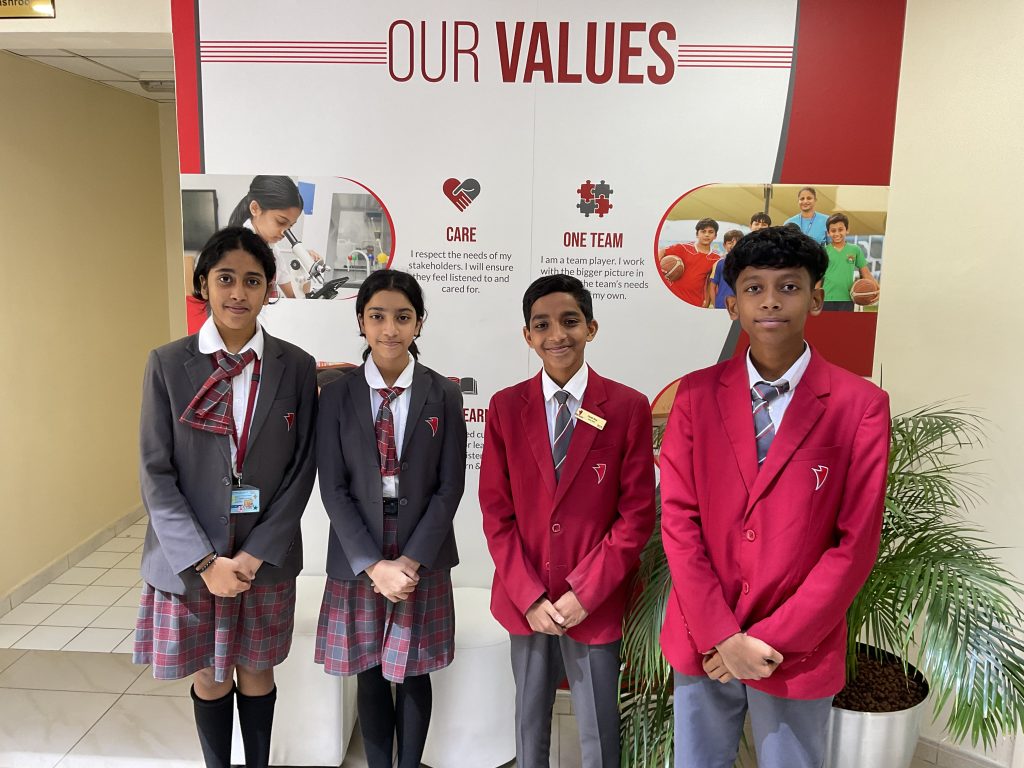In Dubai, a group of dedicated students from GEMS Legacy School has taken steps to address the pressing issue of food waste in their school and community. Guided by Principal Asha Alexander, a 2020 UN CC:Learn Champion committed to climate change education, and driven by insights gained from the UN CC:Learn course on Food Waste Prevention, Noel Nixen, Kashinath Sreekumar, Meeca Lolith, and Kifa Bukhari are educating their peers and working toward long-lasting impact and behavioural changes.
The journey began with the completion of the UN CC:Learn Food Waste Prevention course, which highlighted the alarming rates of food waste across the globe while comprehensively unpacking the problem and providing solutions. Inspired by this knowledge, the students committed to tackling this issue by launching a campaign to raise awareness of the food waste issue and foster sustainable habits within their school and beyond. Their determination has resulted in a concrete impact: over 380 students and 30 teachers at GEMS Legacy School have completed the Food Waste Prevention course, significantly boosting the collective understanding of food waste and its environmental impacts.
In addition to the campaign, the group also explored ways to reduce food waste from the school by monitoring and assessing food waste produced by the school canteen. They tracked the canteen’s food waste patterns, gathered data, and presented their findings to the school administration. Through these data-backed proposals, the students have suggested adjusting portion sizes and providing more flexible meal options to curb waste, ideas the school is now considering.
The team has also expanded its initiative to the broader community, collaborating with the UAE Food Bank, a unit of Dubai Municipality. With the guidance of a teacher, they learned about the UAE Food Bank’s mission and its efforts to reduce food waste by 30% by 2030. The students have committed to raising awareness among their peers about the Food Bank’s recovery programmes with the goal of introducing one of these programmes in the school.
For Noel, Kashinath, Meeca, and Kifa, this journey has been more than an educational experience; it’s a call to action that they hope will inspire sustainable practices in other schools across Dubai. With a focus on changing mindsets and habits, the team plans to expand their campaign to additional schools, launch food recovery initiatives, and continue monitoring the progress of their canteen’s new food management practices. As the students look to the future, they’re empowered by the knowledge that their school community is embracing the principles of food waste prevention—ensuring that their impact will be both lasting and far-reaching.

